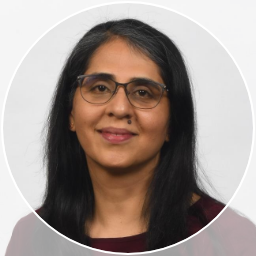BioQUEST Stories
In 2021, BioQUEST celebrated its 35th anniversary as an organization. While we have evolved over the years with the needs of our community, a few things have stayed the same: our commitment to giving all students and educators access to teaching materials that center the student in their own learning, and our open, inclusive community focused on facilitating connections among faculty and their innovation in the classroom. Below are a few stories from our members. If you would like to contribute a story, please contact us! Visit the 35th anniversary celebration page here.
Nicole Chodkowski, former QUBES postdoc and BQ volunteer
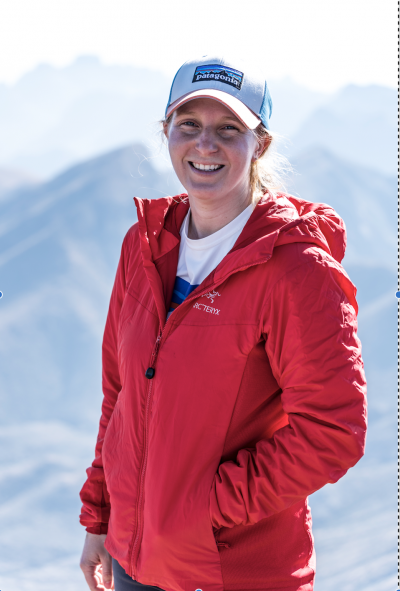 I first became involved with BQ when I was interviewing for the QUBES postdoc position. For my interview, the team invited me to join the summer workshop for a week and I had no idea what I was about to get myself into. However, it was really exciting to be part of lots of discussions and learn about different teaching techniques. I was a graduate student at the time, but I knew I wanted to be in an instructor role after this workshop.
I first became involved with BQ when I was interviewing for the QUBES postdoc position. For my interview, the team invited me to join the summer workshop for a week and I had no idea what I was about to get myself into. However, it was really exciting to be part of lots of discussions and learn about different teaching techniques. I was a graduate student at the time, but I knew I wanted to be in an instructor role after this workshop.
My favorite part about the BQ community is that I know I can call someone for resources, ideas, interview preps etc. and they will be there in a heartbeat to help. They are really dedicated to helping everyone succeed in whatever way they can. I feel supported and to me, that is really important.
Maura Flannery, former BioQUEST leader
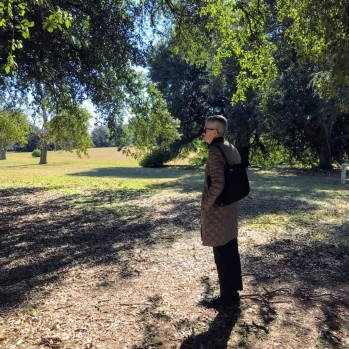 My first BioQUEST workshop was in the early 1990s when I had already been teaching biology to nonmajors for 20 years. The experience was intellectually thrilling. The discussions we had that week, particularly when we worked in groups, were fascinating. But what I remember most vividly was the first night when John Jungck introduced the idea of the three P’s of problem posing, problem solving, and persuasion. This was a new framework for me and one that stuck with me for the rest of my years of teaching.
My first BioQUEST workshop was in the early 1990s when I had already been teaching biology to nonmajors for 20 years. The experience was intellectually thrilling. The discussions we had that week, particularly when we worked in groups, were fascinating. But what I remember most vividly was the first night when John Jungck introduced the idea of the three P’s of problem posing, problem solving, and persuasion. This was a new framework for me and one that stuck with me for the rest of my years of teaching.
I cannot say that my approach in the classroom changed radically, that’s just not how my mind works. But it changed steadily and became more and more about active student engagement. It also focused much more on exploring problems and getting students to consider how the science they were learning carried over into their lives.
I returned for many more workshops and met amazing people who influenced my thinking not only about biological inquiry but about history, art, anthropology, and much more. For me, that was one of the wonders of BioQUEST, there were no limits to what could be explored or to how such explorations could inform biology teaching. I am very grateful to many people I met through BioQUEST, but Ethel Stanley and John Jungck were particularly important to my development as a teacher and a person. In closing, I would like to add that BioQUEST also introduced to the bratwurst, for which I am eternally grateful.
Carlos Goller, longtime member and current board member
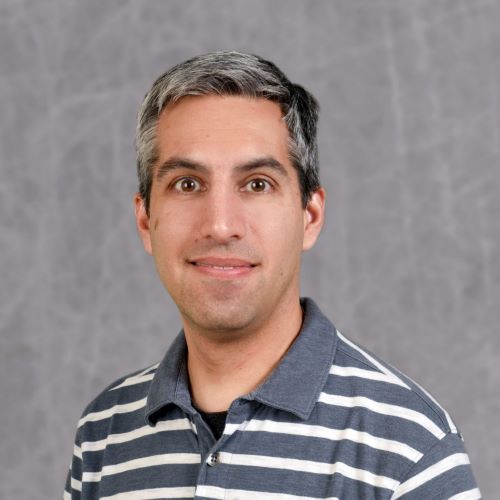 I attended a summer workshop in Delaware. It was my first time attending BioQUEST, and I was a newish postdoctoral teaching scholar. I had finished a research postdoctoral fellowship and now felt out of place. I wanted to become a better teacher, use case studies, and learn from others. I was looking for sources of inspiration for lessons, sound pedagogy... and mentorship. I was walking the hallway of this beautiful building after checking in. As I turned the corner, I crashed into Pat Marsteller! I remembered: you taught my Graduate Teaching Assistant course at Emory! Things just improved from then on. By the end of that day, I was playing bumper cars on awesome green chairs in an amazing active learning room. Importantly, I was invited into this welcoming community. Years later, we reconnect and it always feels the same: like we have been away for just a couple of days. What a great group of people!
I attended a summer workshop in Delaware. It was my first time attending BioQUEST, and I was a newish postdoctoral teaching scholar. I had finished a research postdoctoral fellowship and now felt out of place. I wanted to become a better teacher, use case studies, and learn from others. I was looking for sources of inspiration for lessons, sound pedagogy... and mentorship. I was walking the hallway of this beautiful building after checking in. As I turned the corner, I crashed into Pat Marsteller! I remembered: you taught my Graduate Teaching Assistant course at Emory! Things just improved from then on. By the end of that day, I was playing bumper cars on awesome green chairs in an amazing active learning room. Importantly, I was invited into this welcoming community. Years later, we reconnect and it always feels the same: like we have been away for just a couple of days. What a great group of people!
Kristin Jenkins, executive director 2011-2021
 One of the most fantastic things about BioQUEST is the mentoring and support individuals receive in this community. Sometimes it comes in the form of "tough love." Those of you who have been informed that you are leading the next presentation at a BioQUEST workshop are familiar with this approach. I believe I was co-opted into a session at my very first BioQUEST workshop - something on evolution of lactose tolerance with Ethel and Margaret. “In over my head” did not begin to describe it. But BioQUEST leadership has always gone out of their way to identify people's strengths and give them opportunities to grow into leadership themselves by supporting grants, award nominations, and engaging in professional society opportunities. I developed my educational philosophy and the confidence to pursue my pathway in science education reform through my BioQUEST experiences. And I am not alone. You could map the biology departments across most the country (and many places around the world) by marking everyone who has had John, Ethel or Pat write a letter for them. This generous inclusion has helped many BioQUESTers have a broader impact in science education. I have met so many interesting and inspiring educators through BioQUEST. It’s reassuring to know that there are so many wonderful faculty doing great work out there.
One of the most fantastic things about BioQUEST is the mentoring and support individuals receive in this community. Sometimes it comes in the form of "tough love." Those of you who have been informed that you are leading the next presentation at a BioQUEST workshop are familiar with this approach. I believe I was co-opted into a session at my very first BioQUEST workshop - something on evolution of lactose tolerance with Ethel and Margaret. “In over my head” did not begin to describe it. But BioQUEST leadership has always gone out of their way to identify people's strengths and give them opportunities to grow into leadership themselves by supporting grants, award nominations, and engaging in professional society opportunities. I developed my educational philosophy and the confidence to pursue my pathway in science education reform through my BioQUEST experiences. And I am not alone. You could map the biology departments across most the country (and many places around the world) by marking everyone who has had John, Ethel or Pat write a letter for them. This generous inclusion has helped many BioQUESTers have a broader impact in science education. I have met so many interesting and inspiring educators through BioQUEST. It’s reassuring to know that there are so many wonderful faculty doing great work out there.
BioQUEST has never been afraid to change to really serve the community in meaningful ways and in particular to explore what’s possible. I told people that BioQUEST was aptly named, as I envisioned us as exploring the possible pathways for science education reform, reporting back to the community about likely pathways, and building bridges to help anyone try new approaches. BioQUEST embraces difficult and important ideas for science education and works hard to break down the barriers for everyone to foray into new areas. A BioQUEST summer workshop “only” lasted 5-10 days, but the presentations, resources and philosophical discussions provided fodder for a year’s worth of rumination. Now BioQUESTers can have those discussions and tap into that support year round, from anywhere in Faculty Mentoring Networks and BIOME working groups.
We always have fun doing it, too. I know that everyone has great BioQUEST stories: the large stuffed flamingo, nightmares from Holly’s tick talk, Frozen tattoos anyone? I look forward to many more BioQUEST experiences that will be enlightening, thought provoking, unpredictable, wildly entertaining, and just generally great all around. Thanks for letting me be a part of it all.
Vedham Karpakakunjaram
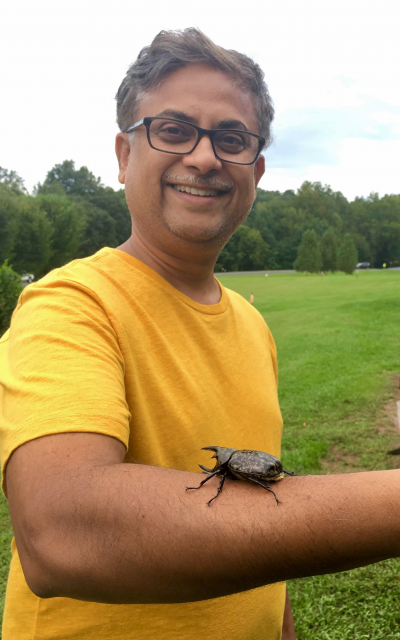 Less than two years into full-time faculty position, when you go to a 9-day summer workshop, and on Day 1, you are asked to come up with a project idea and share with others (knew no one at the workshop at that time) and start forming working groups, the thought of leaving the workshop and flying back definitely crossed my mind… but an inexplicable sense convinced me to stay longer! Mid-way through the workshop, when we were all huddled inside a bathroom (yes, you read it right) taking shelter from a tornado “whizzing by,” and the project ideas were coming together in the working groups, I realized that I have found my professional tribe! I have grown to be a better educator because of my collaborations with many passionate colleagues that I met in the BioQUEST summer workshops since then! There are a few professional events that I look forward to each year, and BioQUEST/BIOME Summer workshop is top in that list.
Less than two years into full-time faculty position, when you go to a 9-day summer workshop, and on Day 1, you are asked to come up with a project idea and share with others (knew no one at the workshop at that time) and start forming working groups, the thought of leaving the workshop and flying back definitely crossed my mind… but an inexplicable sense convinced me to stay longer! Mid-way through the workshop, when we were all huddled inside a bathroom (yes, you read it right) taking shelter from a tornado “whizzing by,” and the project ideas were coming together in the working groups, I realized that I have found my professional tribe! I have grown to be a better educator because of my collaborations with many passionate colleagues that I met in the BioQUEST summer workshops since then! There are a few professional events that I look forward to each year, and BioQUEST/BIOME Summer workshop is top in that list.
Stacey Kiser, Vice President and longtime member of BioQUEST
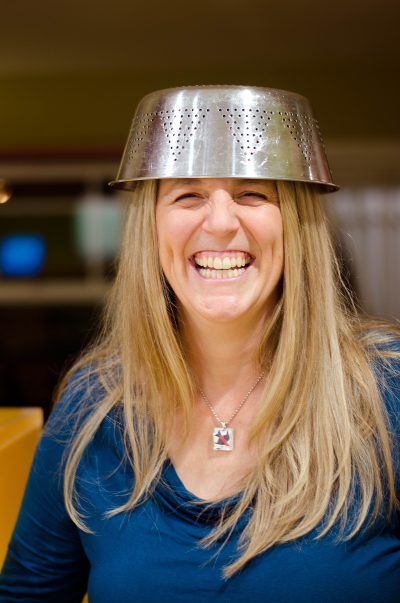
BioQUEST helped me form my identity as a teacher in important ways. It took me a while to get my feet underneath me before I started going to BioQUEST workshops, before I was ready for them, because they challenge you in a lot of ways. Over the years, it’s been good to be challenged, and to feel I’m in a comfortable space and community to be challenged and make improvements and to offer some reflection, as well. People who come back year after year are capable of doing that.
One of my fondest memories was one of my early workshops. We were sitting at breakfast in the cafeteria of Beloit College, and this woman comes and joins us—Maura Flannery. I thought at the time that I hadn’t ever met anybody as polar opposite of me, ever. She was from New York, she's got this short, edgy haircut. And then it turned out that we shared a lot of philosophy about teaching and experience with students, and we ended up working together on the end-of-week project and a few more times after that. It was just great to have experiences like that and a set of people you'd see every year or every other year, who you knew would overlap with you in your thoughts about teaching and how to improve it, and who were there because they wanted to constantly improve as well.
BioQUEST has also been a safe space for me to admit that I didn’t get a great quantitative biology education myself and to finally grow, to feel confident to do more math with my students and teach it right. Then there's also – when I first started it was called the constructivist viewpoint – the idea of students constructing their own knowledge. We don't just open their heads up and pour the lecture in and then send them off. That philosophy has been reinforced at BioQUEST, where I’ve been asked to reflect over and over: Do I trust my students to be able to make their own knowledge? I don't think I'd ever have gotten into doing undergraduate research with them unless I trusted them. They're the researchers, right along with me.
BioQUEST extends this idea to faculty professional development – how much do you have to frame and provide context for faculty members? BioQUEST has that balance of treating faculty members as researchers and learners right along with us.
Pat Marsteller, longtime BioQUEST member and former board chair

First Encounters
I think it was 1991 at the Ecological Society of America meeting. There was this workshop scheduled on using simulations to teach students to investigate genetics and ecology questions. Up front was the gentle giant, John Jungck, accompanied by Patti Soterberg. They carried in Mac computers, set up and began to discuss a philosophy of what students needed to really learn science.
To understand science as it is practiced, rather than solving already well-formulated problems from a textbook, students must be engaged in problem-posing. They must also experience open ended problem solving and investigate for themselves. Then no science is finished until students engage in peer persuasion. (3Ps).
Oh my goodness, the pushback began. Simulations?? Not hands-on lab exercises? Oh, no, how could we use computers instead of wet labs. One person refused to try the simulation. But me! I was an instant convert! John says I stood up and took on the naysayers…maybe so. But I became an instant fan and have been a BioQUESTer ever since.
One summer in Beloit
Our first day of the nine-day extravaganza that was the BQ experience, Ethel Stanley led us out into the prairie and challenged us to look around and come up with questions we could investigate that might interest us and students. There were philosophers, botanists, evolutionary biologists, ecologists and molecular biologists in our group! Wonderful discussions ensued, even though several of our group had never been at a field site. We measured, we took samples, we debated what makes a good question. We talked about the historical significance of prairies and how human action had degraded them. Next day we moved to the lab and learned to use images to measure and evaluate some of our samples. Soon small groups formed to develop curricular materials, plans for developing new lab courses, and yes interesting ideas on philosophy of science and science education. Each small group that formed created products and plans, sometimes working late into the night in Café Bio. We were challenged to incorporate mathematics, equations, experiments and novel products that engaged students. Terrific conversations carried well into the night. We all left exhausted but fulfilled. WOW! More converts. This group was one of many that spun off grants and projects that moved bio education forward. To see some of the papers that have emanated from these institutes, check out the publications page. Think about checking out all the projects that have emerged, too. Join us!
Family reunions with a twist
I come from a huge sprawling Irish Catholic family (on my mother’s side). I am the oldest of 11. My mom was the middle of 13!
Our relations, O’Tooles, Fitz’s were everywhere. As a child, I remember family reunions that encompassed hundreds of people, old friends and new. Later these were replaced with more intimate gatherings of more close groups. I love reunions!
Every BioQUEST meeting, whether summer institute, workshops at all kinds of societies, or Board meetings was a bit like a family reunion. You discover long lost cousins, new in-laws and lots of people from the past. Excitement bubbles as everyone finds new friends and hugs old ones. BioQUEST became my family for making change happen and for staring revolutions in biology education. Every year there were old friends and new people who really wanted to make a difference! NEW PROJECTS EMERGED FROM EVERY MEETING. I LOVE THESE PEOPLE!
Some of My BQ family
Some of my best friends and collaborators are people I have met and worked with through BioQUEST. Starting of course with John Jungck who introduced me to this vibrant community and enticed me to serve on and then lead the Board. All of my case-based learning friends: Chief among them the dynamic duo, Ethel and Margaret who taught me many uses of humor, organized my thinking and allowed me to become more creative. They introduced me to Stacy Kiser, my constant inspiration and I still use her MAD COW one scene case for workshops. Margaret also added oral history to my case repertoire. Many collaborations with Karen and Mark on CASE IT, have created friendships and new ideas. I could go on. Sam introduced me to the concept of problem spaces, a great idea for combining tools, stories and data…maybe we could use this to reinvigorate the collection. The newer case people include Jim Smith, who I met through evo-ed and BQ. Jim and I exchange books and readings, not just on evolution, but books that make you think and see through others' eyes. I introduced Carlos Goller to cases when he was in his postdoc at Emory. Carlos and his friend Sabrina Robertson, now run a case network that uses high throughput data. So transformative. Intriguingly, I met Shuchi Dutta, who runs molecular case net, when my program officer called and asked me to talk with her about her grant ideas. My friends Kristen Frenzel and Leah Roesch have a NeuroCaseNetwork. These three new grants all emerged because of the ScienceCaseNework, created by Ethel and Margaret that I was able to help with. Lifelong friends and new stories continue to emerge from these efforts.
Kristen Jenkins our fearless leader through the transition to 501 3C status taught me patience, project management and many other things. Hayley Orndorf introduced me to UDL and moved my work in new directions. She is one of my idols for her approach to people and to inclusion. I think I introduced Sarah to BQ, but I so admire her vision and her ability to organize. I could go on and on.
I think I first me HT Odem, Virginia Vaughn, Dan Udovic, Phil Gibson, Malcom Campbell, Maura Flannery, Tony Weissman through BioQUEST. The BioQUEST family transforms, supports, creates, and evolves. Newbies, you will make lifelong friends and collaborators!
BioQUEST lessons on mentoring
So, folks, this is part of the BQ vibe. We mentor others and reward them. Here’s a small part of the suggestions for what we do.
-
Don’t wait to be asked to write a support letter or to nominate people for awards, from AAAS fellowships to awards for contributing to science education, or for new positions in NAS, AAAS, or national organizations. Ask them if you can nominate or support their pathway with letters. Then do it!!!
-
Encourage all of our participants to plan for the future
-
Support our family in writing grants, creating new projects and in career advancement
-
Invite diverse people and institutions to participate and find ways to support them with money, advice and real community
-
Keep in touch with people even if they choose a different pathway
-
Student learning and success is central
-
Constructive disagreement and debate can help us all find new horizons
Hayley Orndorf, former workshop coordinator and current UDL consultant
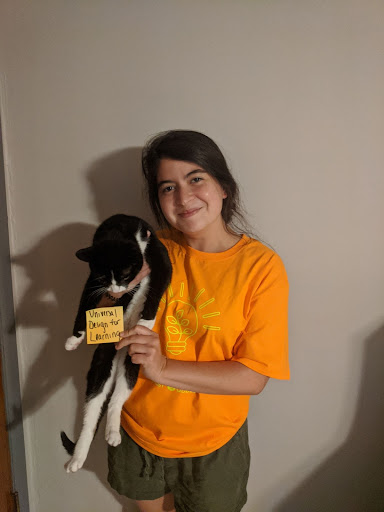 I began working with BioQUEST through the QUBES project when I was an undergraduate at Pitt. Now, quite a few years later, I can say that I owe my professional growth to the BioQUEST community. I have worn many hats as a staff member largely because BioQUEST encouraged me into new roles, to develop new skills, and then provided support while I learned. While I have many stories, I'd like to share a story template that has marked my time with BioQUEST.
I began working with BioQUEST through the QUBES project when I was an undergraduate at Pitt. Now, quite a few years later, I can say that I owe my professional growth to the BioQUEST community. I have worn many hats as a staff member largely because BioQUEST encouraged me into new roles, to develop new skills, and then provided support while I learned. While I have many stories, I'd like to share a story template that has marked my time with BioQUEST.
Someone approaches me and says, "I think you should take on XYZ…" In the majority of cases, this suggestion seems entirely beyond my skill set and abilities. I reply,
"Who? Me? Are you sure? Isn't there someone more qualified for this?"
And they would simply reply, "Yes, I'm sure. I just asked you," and then patiently explain to me why I could take on this new role or responsibility.
Even after accidentally resetting ~100 people's passwords and crashing QUBES during my first Summer Workshop on staff or ordering 5,000 QUBES pens that haunt us to this day, the BioQUEST staff and community have consistently supported me and pushed me to new endeavors. This has led me to develop new skills, meet wonderful colleagues, and pursue my interests within STEM education reform. BioQUEST knows that everyone has something to bring to the table and deeply values individuals and the community they contribute to.
Deb Rook, Deputy Director of BioQUEST, former PD Manager
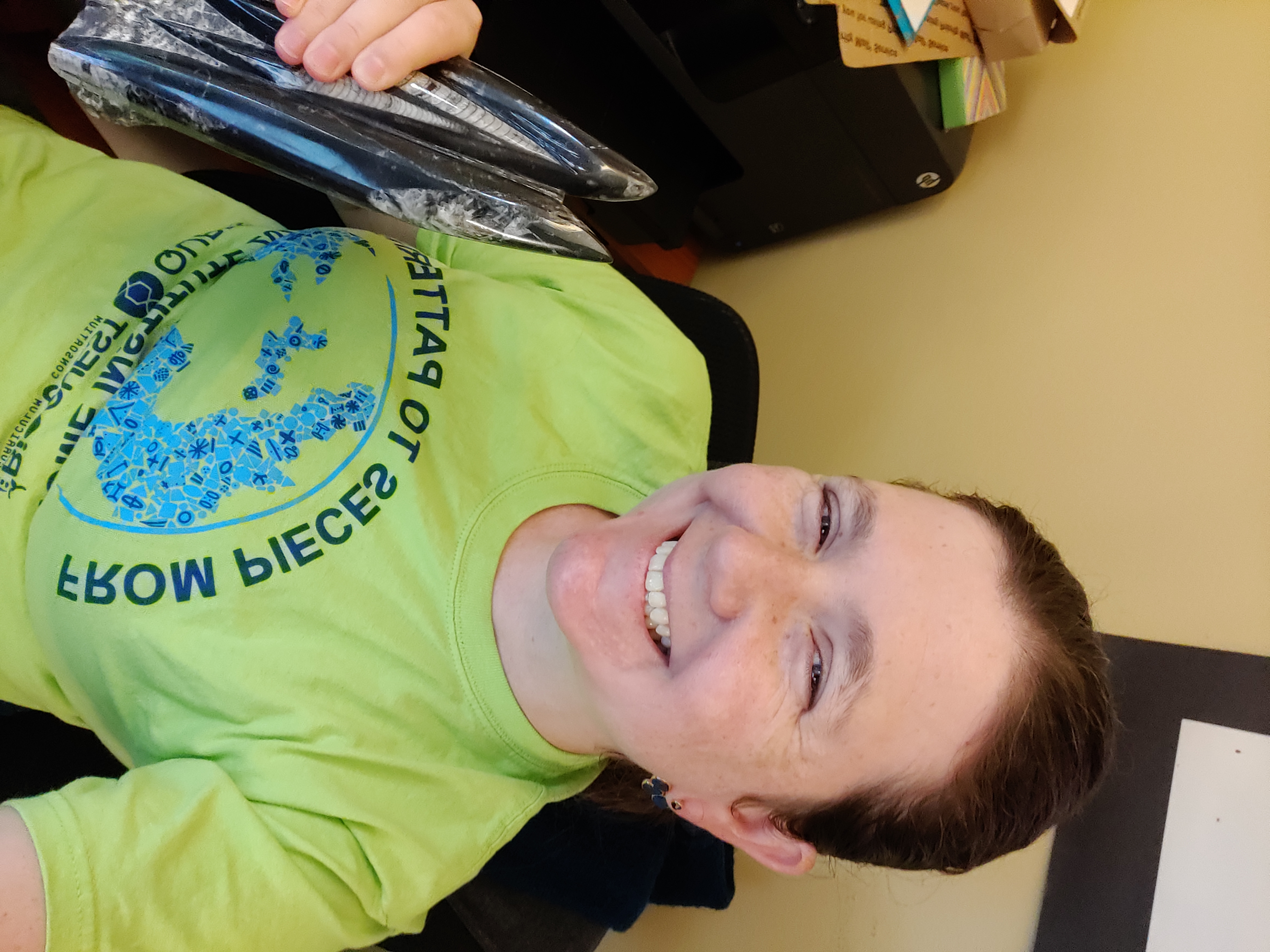
Kristin & I go way back
Once upon a time, a young(ish) PhD student at the University of Wisconsin-Madison stumbled blindly from her Geoscience department in search of her true passion--evolution (her first two degrees were in that, anyway). She found the Crow Institute for the Study of Evolution, and not only that, but they had an Outreach and Education committee! Kristin Jenkins, head of that committee and working with NESCENT at the time, asked for volunteers to assist with a 5-day K-12 teacher workshop. Deb raised her hand and the rest is history.
How I got my job
I had a baby in June 2017. Kristin had moved to Maryland and therefore wasn't that far from me! I was a stay-at-home mom, having not found any work after my PhD. She knew my second had come and asked if she could come down to Virginia to meet her. When she came in, we chatted, she held the baby, and then she looked at me and asked a very serious question. The QUBES project was looking for someone to help run online professional development opportunities, and it was the kind of thing that would be part time, completely from home, and could be done with a baby asleep on your lap. I accepted, not knowing that 4 years later I would move up to be the Deputy Director of BioQUEST.
Drew Hasley at SW 2019
At my first and only in person meeting, I had no idea what to expect. I knew I would meet some awesome people, but what I did not expect was a serious blast from my past. When at UW-Madison, I worked on the Crow Institute for the Study of Evolution Outreach and Education committee with lots of wonderful graduate students. When I got out of the car at dinner the first night, to my surprise and delight, there was Drew Hasley, who had been a sarcasm and sass friend, always jokingly butting heads between the evolutionary history (my wheelhouse) and the genetics (his). It was so good to see him again, and we fell right back into our sassy banter for the rest of the week.
How I met my new boss
Summer Workshop, 2019. Kristin Jenkins, then Executive Director of BioQUEST, refused to listen to the desperate pleading suggestion of one of her colleagues to buy more diet soda, as most soda drinkers did not drink full-sugar. This led to me literally elbow deep in a cooler full of ice, digging for the last Diet Coke. Sarah Prescott came over, looking for the same. With great luck (and foreshadowing of their future relationship), Deb was able to find 2 Diet Cokes, and they both got the boost they so sorely needed.
Sheela Vemu, longtime BioQUEST member
Being part of the 35th anniversary BioQUEST Celebration yesterday brought back a lot of beautiful memories of BioQUEST. My first BioQUEST was in 2014 at the insistence of my colleague Dan Ward. I have attended many meetings since then - spanning North Carolina to Michigan to Pittsburgh. Dan Ward could not go but he said I would meet some of the best people/educators there. I met Kristin Jenkins and Stacey Kiser while looking for my dorm room in the large campus of Harvey Mudd and had delicious food with Sarah at a small local joint after we trudged hours and started writing and publishing my first case study writing with Vedham and Margaret. I ran into Ethel and John Jungck at one of the BioQUEST workshops and they hugged me with their warmth and inspired me to continue on as a 2-year Community College educator who is part of the BIPOC group of educators who wishes to make a difference. Thanks again for arranging a great workshop.

